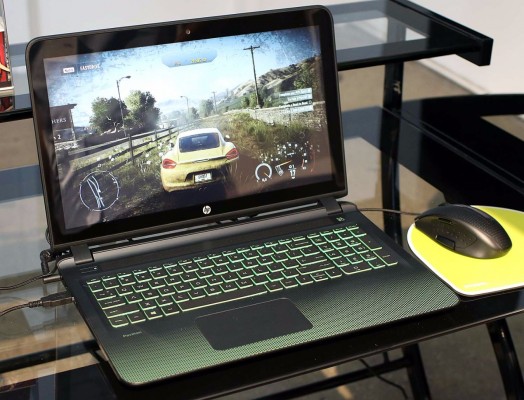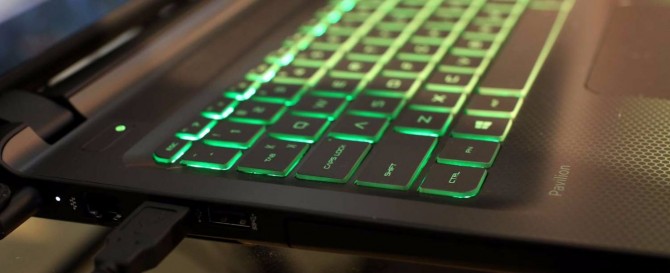HP Pavilion Gaming Notebook Packs a Punch for $899
HP turned heads with its premium Omen gaming laptops, but not everyone has $1,499 to drop (and that was the starting price). The new Pavilion Gaming notebook is aiming for the masses by combining Nvidia GeForce GTX 950M graphics with 6th generation Core i5 or i7 CPUs for a starting price of $899.
During our hands-on time with the Pavilion Gaming notebook at HP's recent fall preview event, it was clear that this machine was built for gamers on a budget. There's a reptilian pattern on the deck, and the keyboard glows green, but you can't change the color. However, the full HD 15.6-inch IPS display delivered rich colors and wide viewing angles. A touch display is optional.
Other specs include up to 16GB of system memory and multiple storage options. You can choose up to 2 TB of hard drive space, up to a 1 TB of hybrid hard disk drive, or dual storage with a 2 TB HD and 128 GB SSD.
To enhance the gameplay experience, the HP Pavilion Gaming notebook is equipped with dual speakers powered by B&O audio. Even in a noisy, cavernous room, I could easily hear the tires screeching as I played a racing game.
You'll find an optical drive along with plenty of ports on this 5.5-pound gaming notebook, including two USB 3.0 ports, one USB 2.0, one HDMI, Ethernet and an SD Card reader. Those looking to wave their hands in front of their PCs for a growing number motion-sensing apps and games can order the Pavilion Gaming notebook with one of Intel's RealSense cameras.
HP promises up to 8 hours and 15 minutes of battery life, but that's for everyday use and not gaming. We'll bring your our full test results when we perform our review on the Pavilion Gaming laptop.
- The Best Gaming Laptops
- Laptop Finder - Get Personalized Recommendations
- Our Favorite Gaming Mice for Every Genre
Sign up to receive The Snapshot, a free special dispatch from Laptop Mag, in your inbox.



